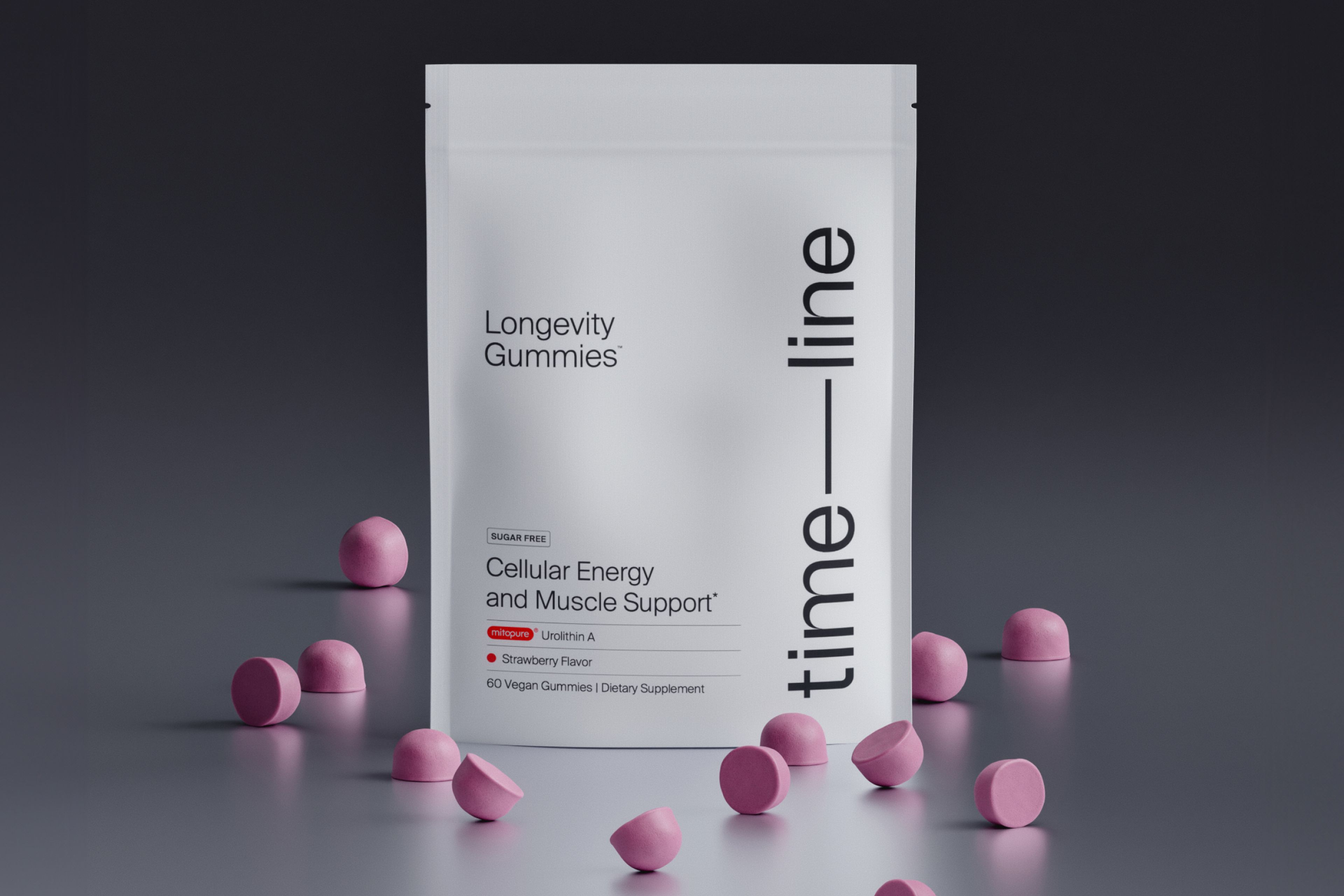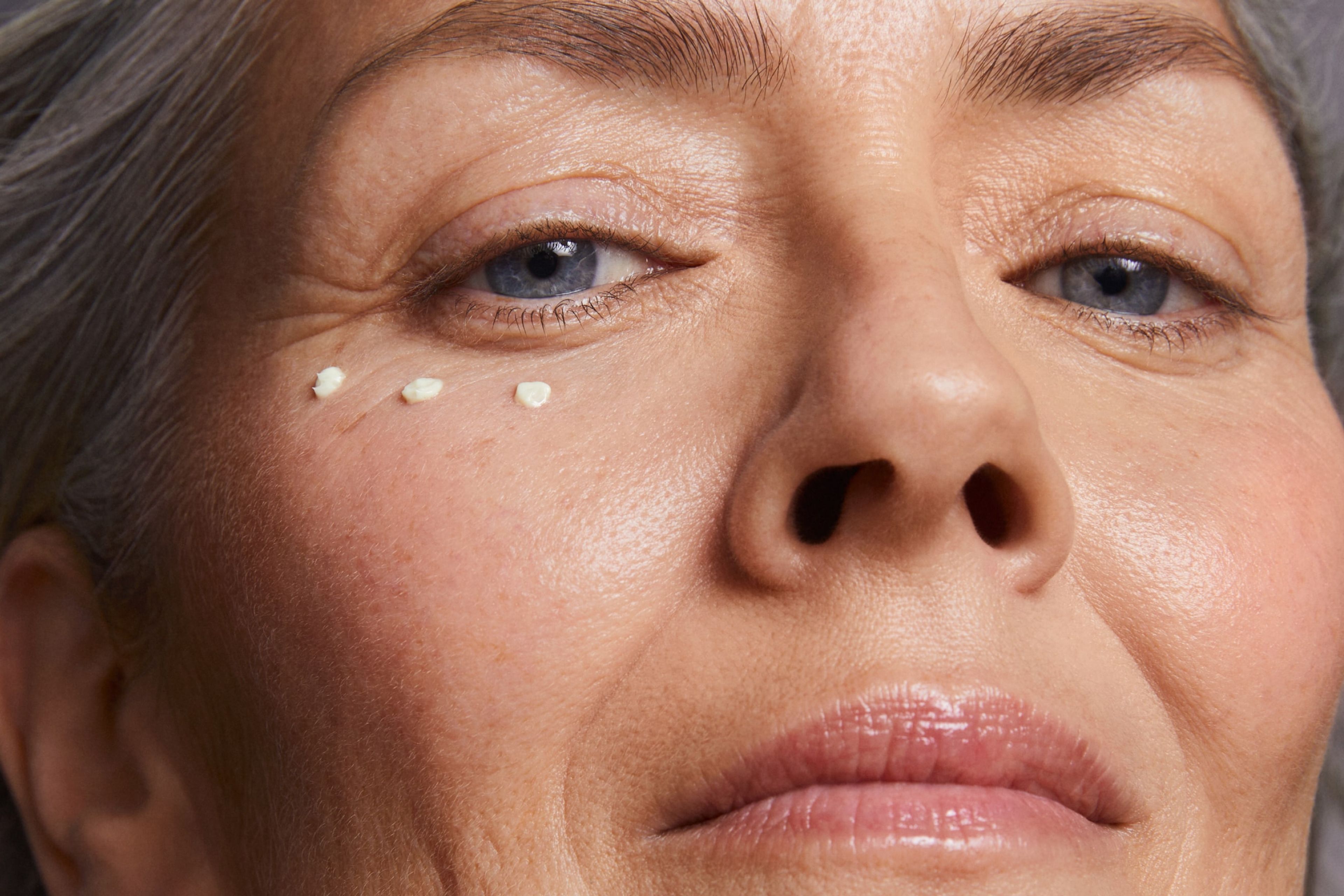Selecting Safe Skincare for Sensitive Skin
Finding skincare products that deliver results without irritation can be tricky. Read on to learn how to make safe choices for sensitive skin.
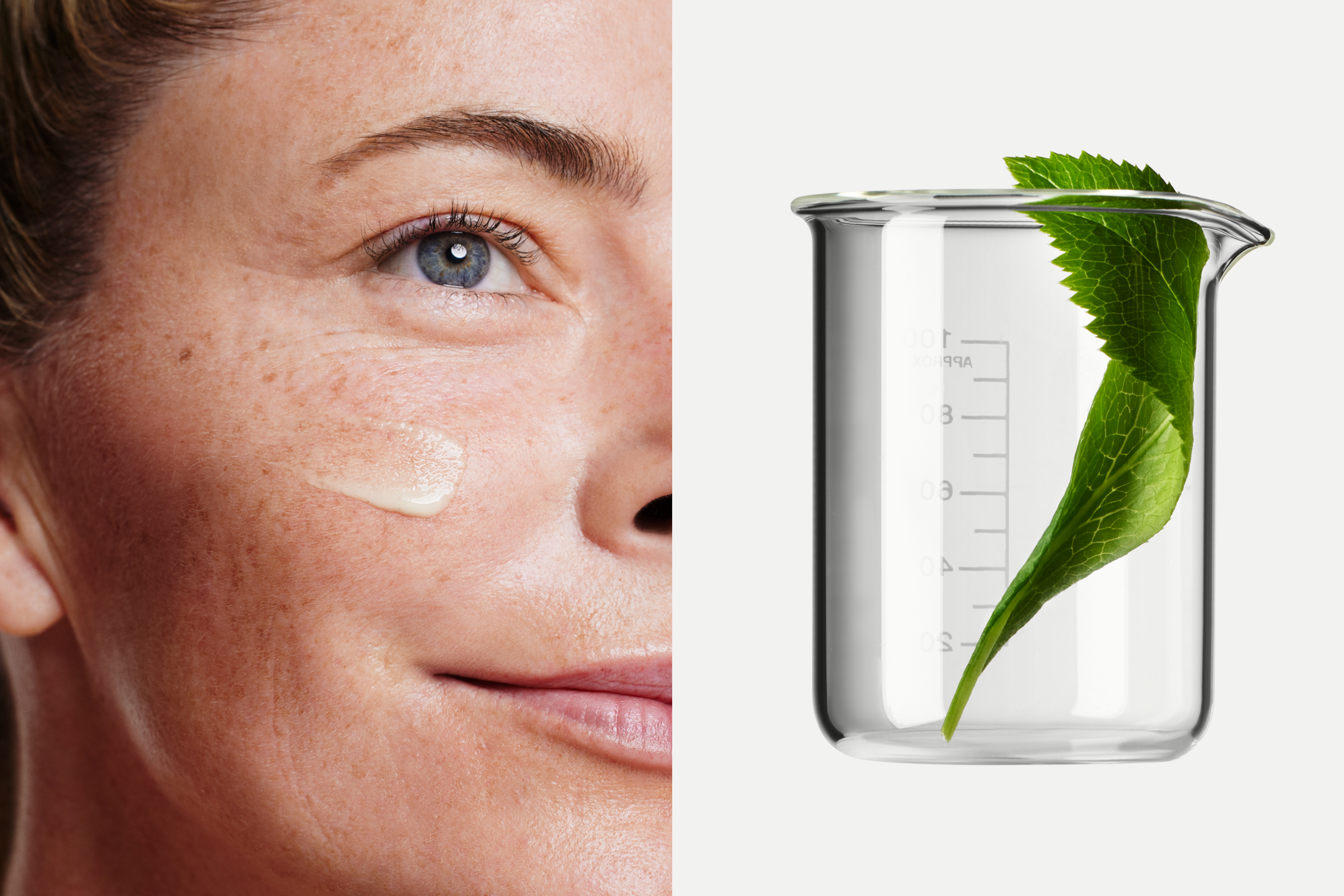
What to know
Sensitive skin is common, and some skincare products can worsen symptoms
Not all products undergo the same level of clinical testing for safety and irritant-free claims
Many anti-aging products contain harsh ingredients to achieve their effects
Determining a product’s safety is easier than you may think
Timeline Skin Health puts safety and science first for all skin types
Most of Us Have Sensitive Skin
These days, you hear a great deal about sensitive skin. It’s not surprising, given that as many as 70% of women and 60% of men worldwide report having it. Sensitive skin is a broad term and can mean different things to different people. Some experience sensitive skin as redness, some as stinging, and others as general dryness, itchiness, flaking, or any combination of these symptoms. If that’s not enough to contend with, certain skincare products can worsen these unpleasant symptoms.[1]
Unfortunately, most skincare products aren’t required to undergo rigorous clinical testing for safety and sensitivity. While many beauty and health brands conduct premarket “irritant-free” testing, the quality of their clinical testing methods can vary substantially.[2]
In addition, many common anti-aging products contain harsh ingredients to achieve their effects. Though these ingredients may deliver benefits such as exfoliating the skin, promoting collagen stimulation, and reducing wrinkles, they can come at the cost of additional irritation and susceptibility to damage from external factors such as UV rays.[3]
Consumers should always approach their skincare from a buyer-beware standpoint. To optimize skin health, they need products that maintain a delicate balance of effectiveness and safety to avoid worsening skin conditions while gaining other benefits.
Determining Skincare Safety
The good news is that consumers can quickly learn about a skincare product’s safety by taking these measures.

1. Check the Research
The amount of voluntary clinical testing a company conducts on its products reflects its commitment to safety. However, some companies claim they’ve conducted extensive clinical testing when closer inspection often reveals that they haven’t or have only conducted minimal testing.
Fortunately, you can quickly determine how extensive and substantive a company’s research is relatively easily. Here’s a helpful clinical-study checklist:
- Are the studies listed on clinicaltrials.gov?
- How many studies have been conducted?
- Are the studies published in peer-reviewed, respected medical journals?
- Are the studies conducted on humans or animals? Do they include men and women of diverse ages, ethnicities, and skin types?
- Are the studies double-blinded with a placebo comparison (i.e., participants don’t know whether they’re receiving the product or a placebo)?
- Are the studies ongoing?
2. Look for HRIPT Results
The Human Repeat Insult Patch Test (HRIPT) is recognized in the cosmetic industry and accepted by regulatory institutions worldwide as the standard test to evaluate “hypoallergenic,” “nonirritating,” and “suitable for sensitive skin” claims and determine the potential for irritation, sensitization, and allergic contact.[4] If a product has been tested using an HRIPT, you can feel confident it will not aggravate your sensitive skin.
3. Read the Label
A product’s safety often reflects its ingredients, so be sure to check the ingredients on its label – especially if you’re prone to skin allergies. According to researchers at the University of Washington, synthetic fragrance ingredients can trigger irritation (e.g., skin rashes, headaches, coughing, wheezing) in more than 20% of the population.[5] Erring on the side of fragrance-free and dye-free ingredients is always safer.
Of course, ingredient labels can be difficult to decipher—it’s sometimes as if they’re in a foreign language! Conveniently, several apps can help you identify the overall safety of a product’s ingredients. One example is the Yuka app. Created in 2017, the Yuka app for consumers leverages the latest scientific research to analyze every ingredient in a product and assign it a risk level for its potential adverse health effects, ranging from carcinogenic to allergenic and simple irritant.[6]
How Does Timeline Stack Up?
With those criteria in mind, you may be wondering how Timeline Skin Health stacks up on these metrics. Let’s take a look:
1. Timeline Skin Health Research
Timeline has conducted rigorous research on its skin health products.
- Listed on clinicaltrials.gov
- Studied in 11 clinical trials
- Published in peer-reviewed, respected medical journals
- Researched in studies that are:
On humans, including men and women of diverse ages, ethnicities, and skin types.
Double-blind and include a placebo comparison.
Ongoing. - Formulated with Urolithin A, which has been researched in 300 published studies
2. Timeline Skin Health HRIPT Results
The safety of Timeline Skin Health was evaluated in an HRIPT single-blind study of 112 people over 6 weeks. No skin irritation or sensitization occurred.
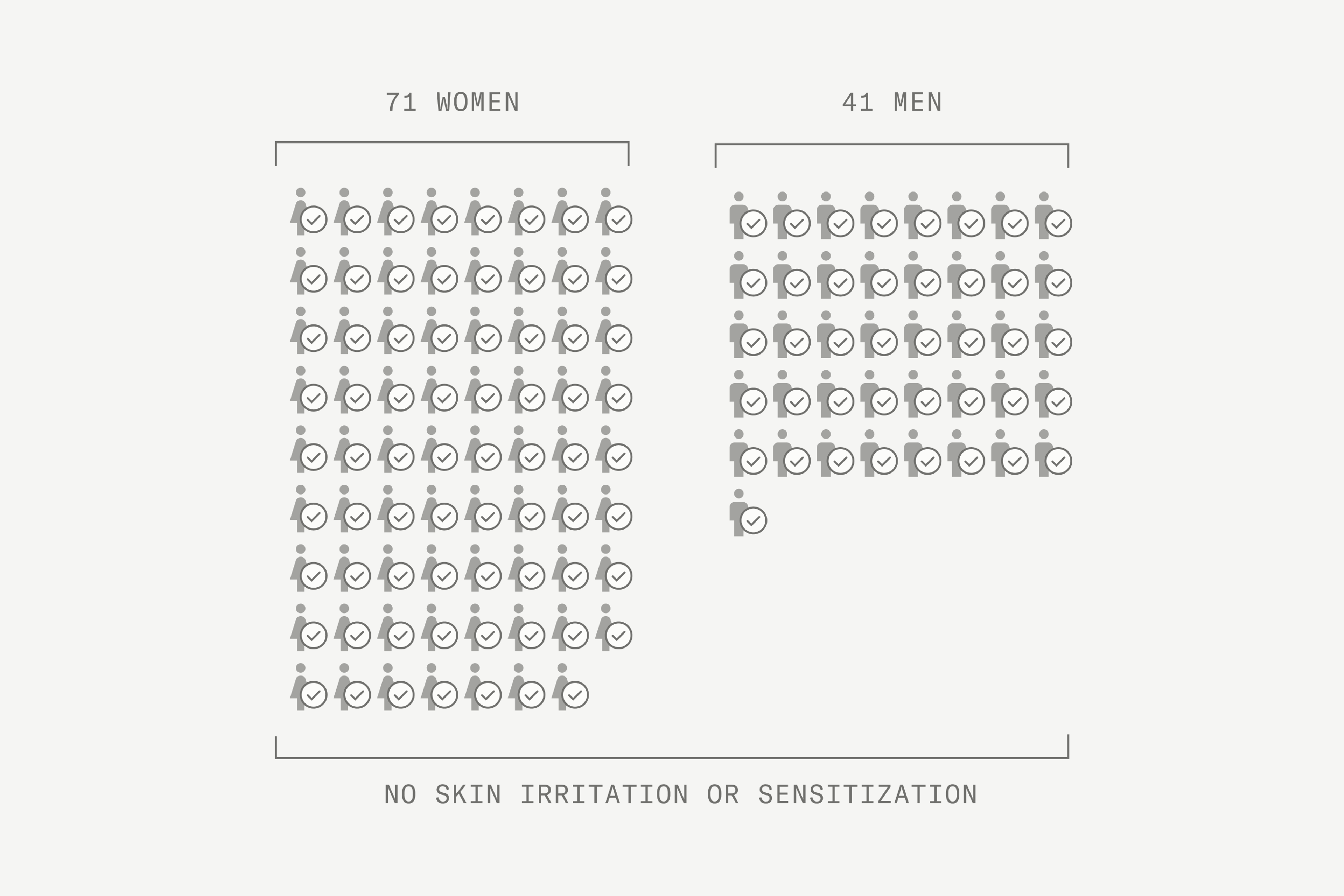
3. Timeline Skin Health Ingredients and Labels
The Timeline Skin Health Range received excellent scores from Yuka based on their ingredients.

All products in the Timeline Skin Health Range are:
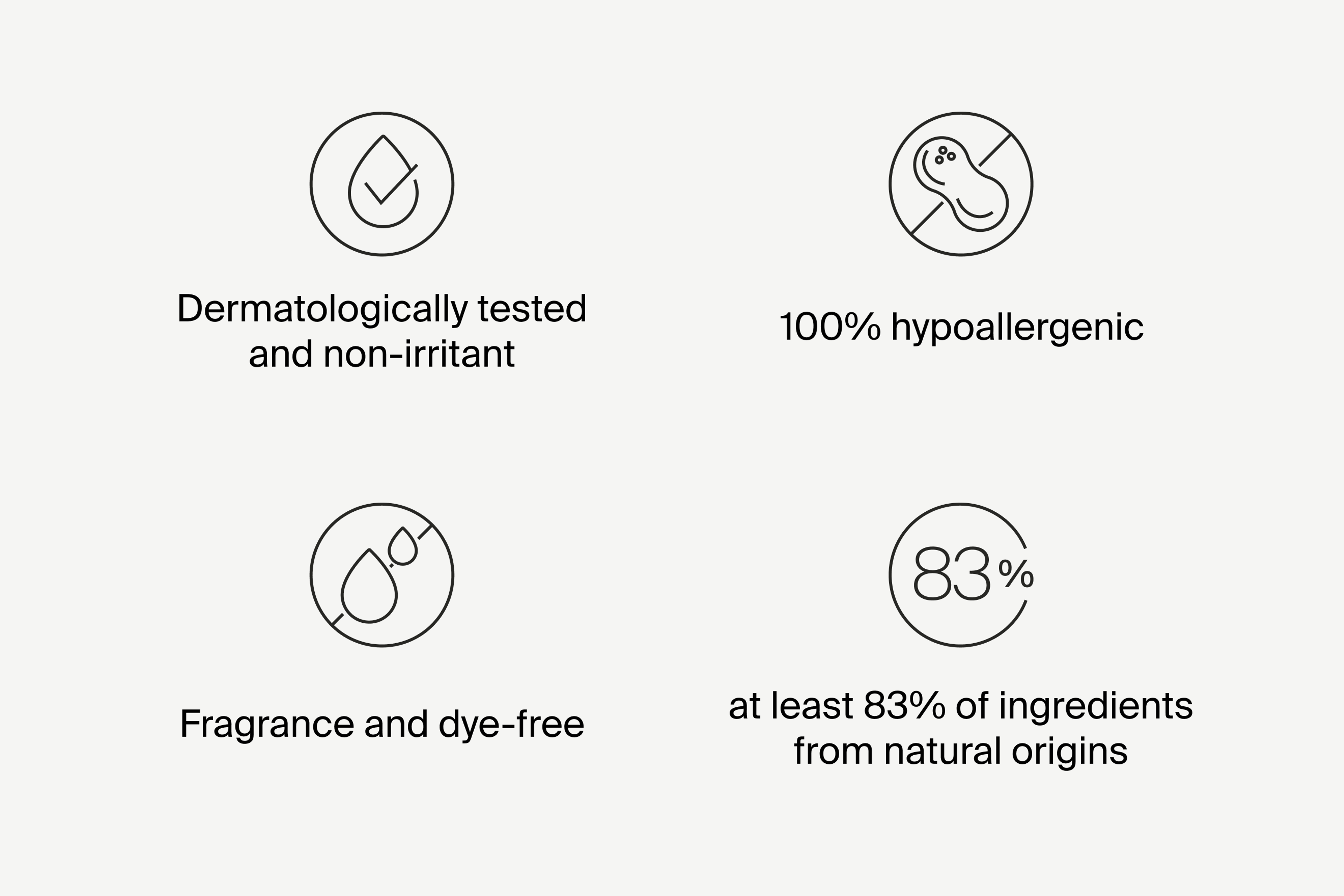
While it may take a little added due diligence, determining a skincare product’s safety before you begin a new regimen will help prevent any adverse reactions.
Timeline’s Commitment to Safety & Results
At Timeline Skin Health, we’ve done the research for you. How much research, you may ask? Our products are built on 15 years of scientific research in collaboration with the Swiss Federal Institute of Technology Lausanne (EPFL). We’re equally committed to product safety and effectiveness. We conduct rigorous and ongoing clinical trials that include individuals of diverse ethnicities and skin types.
Our Timeline Skin Health Range proves that skin products can be both gentle on the skin and powerfully effective from within. The Timeline Skin Health Range is formulated from safe ingredients that are 100% hypoallergenic and nonirritating. The name says it all—Skin Health. We’ve gone far beyond basic skincare to extend your skin’s health span for healthy, youthful-looking skin at any age.
Authors

Writter
Editorial Staff
References
- ↑
Farage MA. The prevalence of sensitive skin. Front Med (Lausanne). 2019;6:98.
- ↑
Farage MA. The prevalence of sensitive skin. Front Med (Lausanne). 2019;6:98.
Mayo Clinic staff. Wrinkle creams: your guide to younger looking skin. Mayo Clinic. Accessed March 1, 2023. https://www.mayoclinic.org/diseases-conditions/wrinkles/in-depth/wrinkle-creams/art-20047463 (https://www.mayoclinic.org/diseases-conditions/wrinkles/in-depth/wrinkle-creams/art-20047463)
- ↑
Sole-Smith V. 7 skin care ingredients that can trigger allergic reactions. Everyday Health. Accessed March 1. 2023. https://www.everydayhealth.com/pictures/skin-care-ingredients-allergic-reactions (https://www.everydayhealth.com/pictures/skin-care-ingredients-allergic-reactions/)
- ↑
HRIPT test: allergy patch, hypoallergenic claim. Evalulab. Accessed March 1, 2023. https://www.evalulab.com/en/safety-studies/hript-test (https://www.evalulab.com/en/safety-studies/hript-test/)
- ↑
Mayo Clinic staff. Wrinkle creams: your guide to younger looking skin. Mayo Clinic. Accessed March 1, 2023. https://www.mayoclinic.org/diseases-conditions/wrinkles/in-depth/wrinkle-creams/art-20047463 (https://www.mayoclinic.org/diseases-conditions/wrinkles/in-depth/wrinkle-creams/art-20047463)
- ↑
Ophélia. How are cosmetic products evaluated? Yuka. Accessed March 1, 2023. https://help.yuka.io/l/en/article/2t20ixn5y5-evualuation-cosmetic-products (https://help.yuka.io/l/en/article/2t20ixn5y5-evualuation-cosmetic-products%20)

•
Skincare•
Inside Timeline’s Lab: Meet Mitochondria Expert Julie Faitg

•







